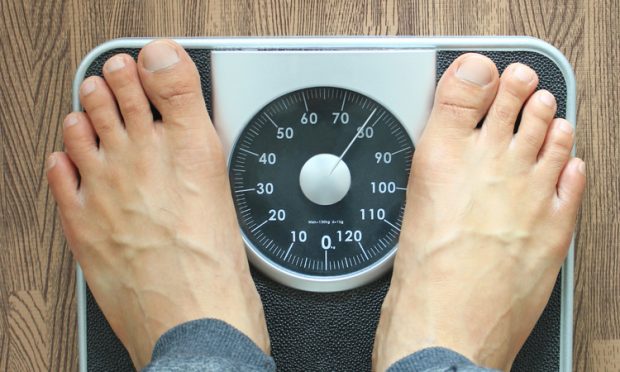
Weight gain in mid-20s linked to early death risk: Study
Team Udayavani, Oct 17, 2019, 4:13 PM IST

Washington: Gaining weight from your mid-20s into middle age is associated with an increased risk of premature death, according to a study of US adults.
The study, published in the journal BMJ, also found that weight loss at older ages, from middle to late adulthood, was also linked to higher risk.
These findings by researchers from Huazhong University of Science and Technology in China highlight the importance of maintaining normal weight throughout adult life to reduce the risk of premature death, the researchers said.
Obesity in adults is known to be linked to a higher risk of premature death, they said.
However, little is known about the long term effects of weight change during adult life, especially from young to middle adulthood.
To explore this further, researchers based in China set out to investigate the association between weight changes across adulthood and mortality.
Their findings are based on data from the 1988-94 and 1999-2014 US National Health and Nutrition Examination Survey (NHANES), a nationally representative annual survey that includes interviews, physical examinations, and blood samples, to gauge the health of US citizens.
Their analysis included 36,051 people aged 40 years or over with measured body weight and height at the start of the survey (baseline) and recalled weight at young adulthood (25 years old) and middle adulthood (average age 47 years).
Deaths from any cause and specifically from heart diseases were recorded for an average of 12 years, during which time there were 10,500 deaths.
After taking account of potentially influential factors, the researchers found that people who remained obese throughout adult life had the highest risk of mortality, while people who remained overweight throughout adult life had a very modest or no association with mortality.
Weight gain from young to middle adulthood was associated with increased risk of mortality, compared with participants who remained at normal weight, the researchers said.
Weight loss over this period was not significantly related to mortality, they said.
However, as people got older, the association between weight gain and mortality weakened, whereas the association with weight loss from middle to late adulthood became stronger and significant.
No significant associations were found between various weight change patterns and cancer mortality, the researchers said.
This is an observational study, and as such, can’t establish cause, and the possibility that some of the observed risks were due to unmeasured factors can’t be ruled out, they said.
“Stable obesity across adulthood, weight gain from young to middle adulthood, and weight loss from the middle to late adulthood were associated with increased risks of mortality,” they said.
“The results highlight the importance of maintaining normal weight across adulthood, especially preventing weight gain in early adulthood, for preventing premature deaths in later life,” the researchers said.
Udayavani is now on Telegram. Click here to join our channel and stay updated with the latest news.
Top News

Related Articles More

‘Faster walkers’ had significantly lower risk of diabetes, hypertension: Study

World Meditation Day 2024: Celebrating inner peace and well-being

Virus causing gut infections could play role in development of Alzheimer’s: Study

Air pollution linked to more hospitalisations for all causes, mental illness too, study finds

Plant-based meat alternatives linked to increased risk of depression in vegetarians, study finds
MUST WATCH
Latest Additions

Kannada Sahitya Sammelana: Food distribution creates stir

Rohit gets hit in nets, practice pitches on slower side

India & Kuwait elevate ties to strategic level; ink defence pact after PM Modi meets top Kuwaiti leaders

In Kuwait, PM Modi meets yoga practitioner, other influencers from Gulf country

Notorious gangster wanted in UAPA case arrested at Nepal border
Thanks for visiting Udayavani
You seem to have an Ad Blocker on.
To continue reading, please turn it off or whitelist Udayavani.

















